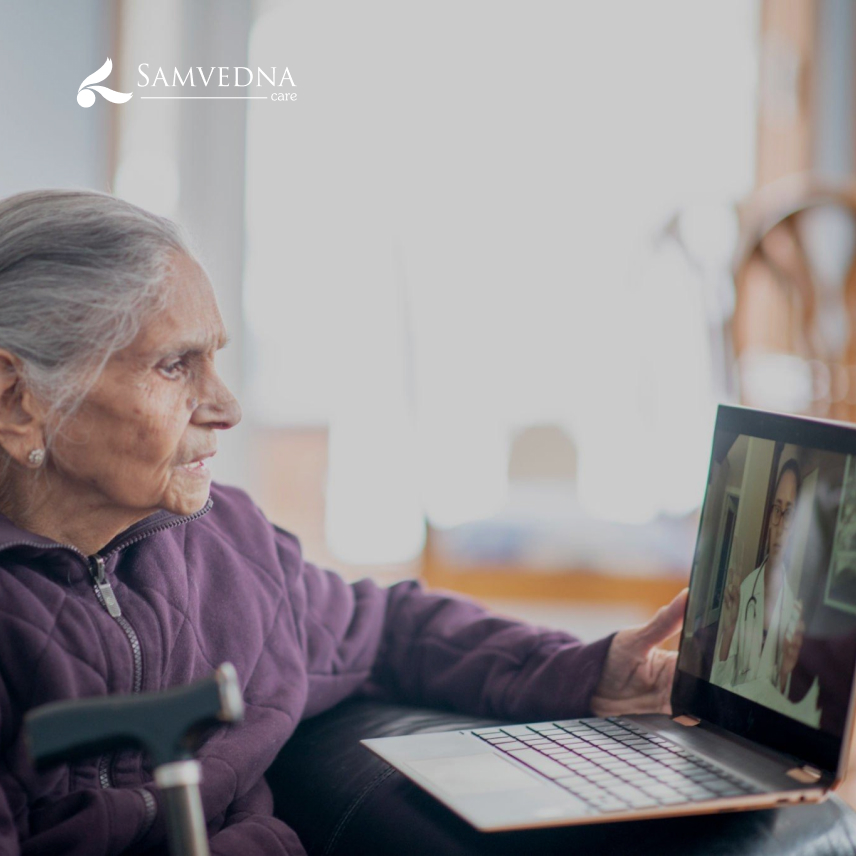Contact Us




Parkinson’s disease (PD) is a highly individualized condition, with no two people experiencing it exactly the same way. For many individuals, depression and anxiety emerge as common and primary symptoms. Despite their potential to greatly affect one’s quality of life, it’s important to note that these symptoms are amenable to effective treatment. Various successful approaches, including medication, physical stimulation, elderly care, and psychotherapy (talk therapy), can improve quality of life and reduce disability and emotional distress.
As clinical psychologists and researchers specializing in treating mental health concerns in PD at Samvedna Care, we often get questions from clients about the role of psychotherapy (talk therapy) provided by mental health therapists in PD care. Many people wonder if talk therapy is helpful and what it looks like in practice. Samvedna Care would like to address these important questions and shed light on the significant role of psychotherapy in the care and management of Parkinson’s disease (PD).
Let’s begin with an important question: How would you describe Parkinson’s disease? Is it primarily characterized by symptoms such as anxiety, tremors, a fear of falling, stiffness, depression, insomnia, slowness, a loss of interest, fatigue, memory, and cognitive issues, or perhaps a combination of these factors?
While we’ve often thought of Parkinson’s disease as mainly affecting movement, it brings about various physical and mental issues. Depression and anxiety, which are mental illnesses, are quite common in people with Parkinson’s and can cause much distress. Surprisingly, around 80 percent of those with Parkinson’s report to mental health therapists having at least one mental health concern at some point during their journey with the disease. What’s interesting is that depression and anxiety can show up at any time, and in some cases, they may appear even before the physical symptoms like tremors do, sometimes many years before.
The reason why depression and anxiety are common in Parkinson’s disease is because of various factors. Firstly, Parkinson’s affects certain chemicals in the brain that control mood, which can contribute to these feelings. Additionally, the diagnosis of Parkinson’s and the way the disease gradually changes can cause stress and disruptions in daily life. This can make adjusting hard and affect how people feel emotionally and their overall quality of life.
The good news is that we can effectively treat depression and anxiety in Parkinson’s disease. Apart from using medicines for depression and anxiety and regular exercise, many people are finding therapy helpful. There are different types of therapy to choose from, which should be based on what the person with Parkinson’s prefers and needs.
How do you determine if psychotherapy may be a helpful addition to your PD management?
Psychotherapy can be a helpful addition to Parkinson’s disease management as it helps to cope with emotional and psychological challenges. Ask yourself some questions: Do you generally feel as good as you would like? Are there things you enjoy and find meaningful in your life? Do you ever feel lonely or avoid being with others? Do you often have negative thoughts about yourself, your life, or the future? Do you worry a lot and often imagine worst-case scenarios? Have people close to you noticed changes in your mood?
Remember, having different emotions in response to life events is normal. Talking about your feelings is a healthy way to deal with them. If you are struggling with anxiety, depression, or other mental health challenges, psychotherapy can help you to manage these symptoms and improve your mood. It can help you to develop coping skills and strategies and seek professional help from mental health therapists.
Along with psychotherapy, Samvedna Care also provides elderly care service, vital in supporting people with PD experiencing anxiety and depression by providing emotional support and companionship.
What is the time commitment?
The time commitment for psychotherapy is usually about 60 minutes per session, held once or every other week. You can have these sessions in the therapist’s office or via phone or video. However, it’s important to know that much of the progress happens outside these sessions. The more you practice the skills you learn, the better you’ll feel. As you start to see improvements in your mood and how you cope, you’ll have fewer therapy sessions until you feel confident in managing things independently. Some people still have occasional sessions for a skills refresher, even when they’re doing well. Typically, over three to four months, most people experience a significant reduction in depression and anxiety through therapy. Therapy may be used alone or alongside medication, depending on your situation and preference.
Parkinson’s disease (PD) is a complex condition that can significantly impact physical and mental health. Depression and anxiety are common symptoms of PD, and they can greatly affect a person’s quality of life.
Psychotherapy can be a helpful addition to PD management and can be used to treat depression, anxiety, and other mental health challenges. It is important to note that psychotherapy is not a cure for PD, but it can help people manage their symptoms and improve their overall well-being. Samvedna Care provides both psychotherapy and elderly care services for people with PD. We understand the unique challenges that people with PD face, and we are committed to providing them with the support they need to live fulfilling lives.